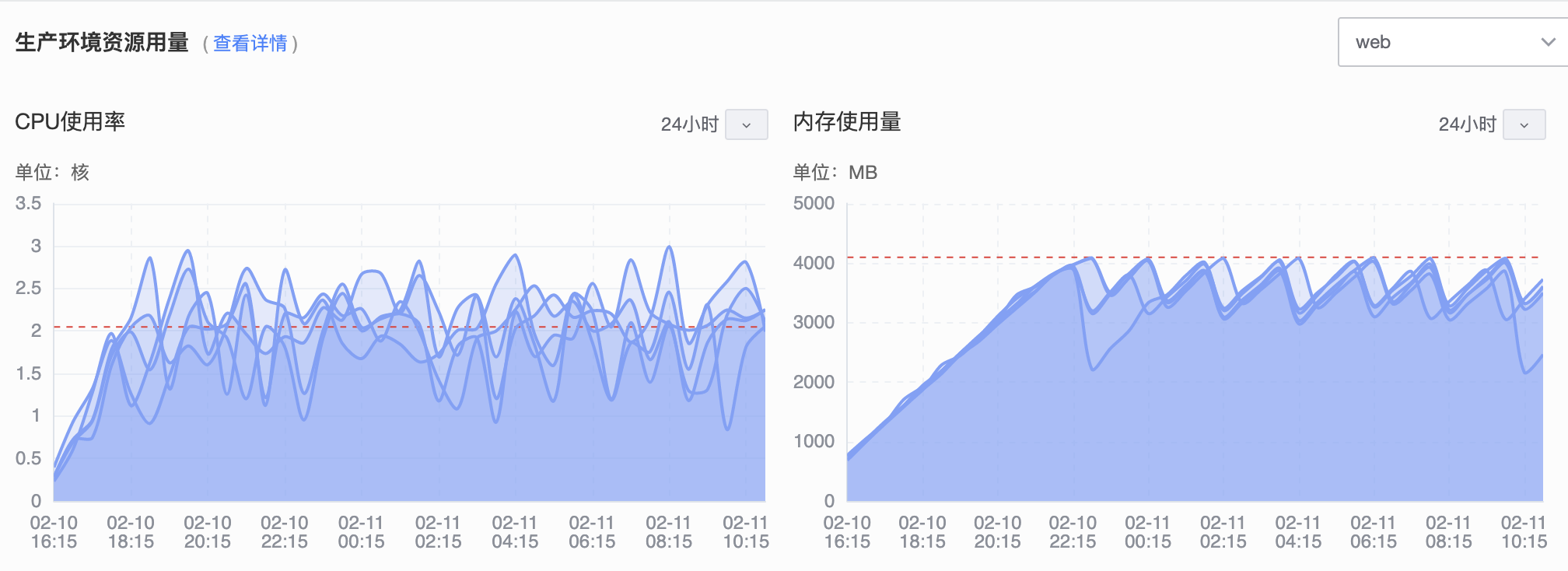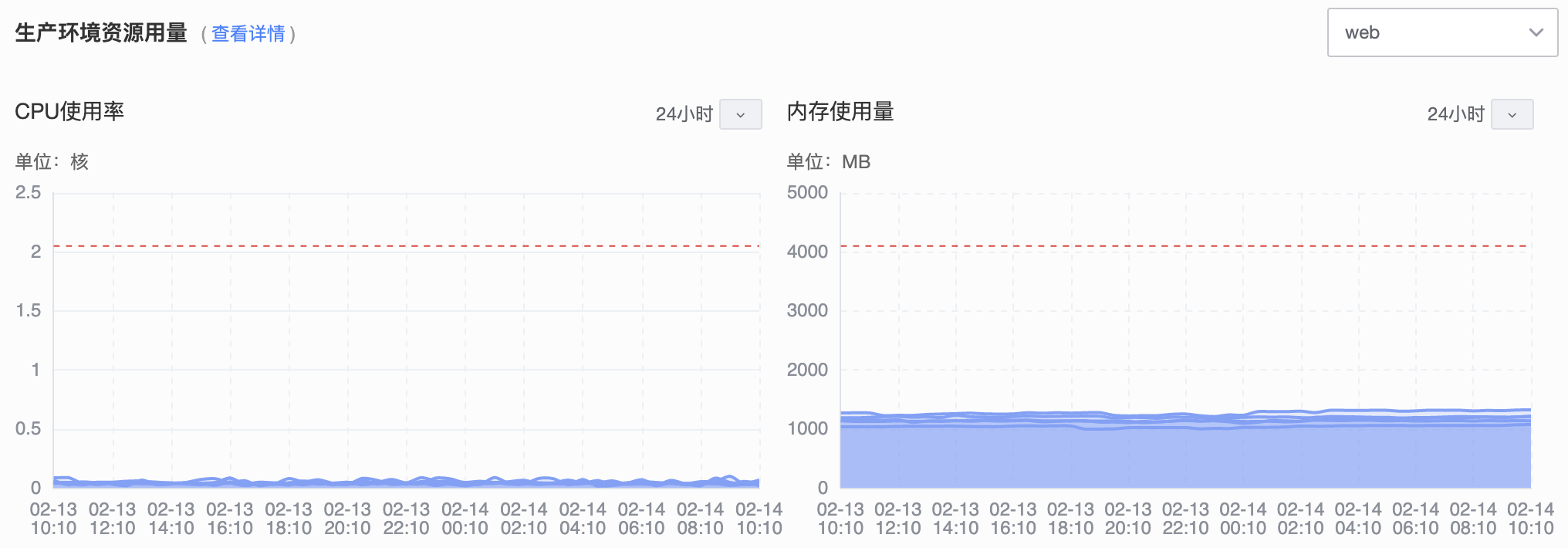Memory Leak in Python multiprocessing.Pool
There is a historical memory leak problem in our Django app and I fixed it recently. As time goes by, the memory usage of app keeps growing and so does the CPU usage.

After some research, I figure out the cause. Some views does not close multiprocessing.Pool after using it. The problem disappears when I use Pool with with statement.

But I’m still interested in it and wrote some testing code. The script is run in Python 3.6.8 and produce similar result when using multiprocessing.ThreadPool.
import time
from multiprocessing import Pool
def func(i):
return i
def ori():
# create many thread as time goes by, when i==300 cpu grow to 300%, run out of 16g ram and stuck I have to kill process
p = Pool(4)
r.append(p.map(func, range(4)))
def with_close():
# 100% cpu, 0.1 ram, create 40 thread, takes 41s
p = Pool(4)
r.append(p.map(func, range(4)))
p.close()
def with_terminate():
# 5% cpu, 0.1 ram, create 4 thread, takes 425s
p = Pool(4)
r.append(p.map(func, range(4)))
p.terminate()
def with_with():
# same as terminate
with Pool(4) as p:
r.append(p.map(func, range(4)))
r = []
s = time.time()
for i in range(4000):
ori()
# with_close()
# with_terminate()
# with_with()
if i % 100 == 0:
print(i)
print(f'takes {time.time() - s} seconds')
As you can see, there are four functions. The ori function is Pool with no close and terminate, the RAM keeps growing and the script stuck. with_close, with_terminate and with_with will exit normally but time is different.
Why close() is faster than terminate()
Pool.terminate() will call terminate() in each worker. Pool.close() just change the pool states and each worker will terminate itself. You can find the source code on GitHub.
Verify Memory Leak
import gc
import time
import weakref
from multiprocessing import Pool
def func(i):
return i
p = Pool(4)
wr = weakref.ref(p)
p.map(func, range(4))
print(wr())
print(gc.get_referents(wr()))
# p.close()
# p.terminate()
time.sleep(1)
del p
gc.collect()
print(wr())
print(gc.get_referents(wr()))
If not calling close or terminate, after execution, p is still referred by some objects:
<multiprocessing.pool.Pool object at 0x7fc0e6db0828>
[{'_ctx': <multiprocessing.context.ForkContext object at 0x7fc0e6d455c0>, '_inqueue': <multiprocessing.queues.SimpleQueue object at 0x7fc0e6db0860>, '_outqueue': <multiprocessing.queues.SimpleQueue object at 0x7fc0e5babac8>, '_quick_put': <bound method _ConnectionBase.send of <multiprocessing.connection.Connection object at 0x7fc0e620e8d0>>, '_quick_get': <bound method _ConnectionBase.recv of <multiprocessing.connection.Connection object at 0x7fc0e4d241d0>>, '_taskqueue': <queue.Queue object at 0x7fc0e4d24320>, '_cache': {}, '_state': 0, '_maxtasksperchild': None, '_initializer': None, '_initargs': (), '_processes': 4, '_pool': [<ForkProcess(ForkPoolWorker-1, started daemon)>, <ForkProcess(ForkPoolWorker-2, started daemon)>, <ForkProcess(ForkPoolWorker-3, started daemon)>, <ForkProcess(ForkPoolWorker-4, started daemon)>], '_worker_handler': <Thread(Thread-1, started daemon 140466410379008)>, '_task_handler': <Thread(Thread-2, started daemon 140466401986304)>, '_result_handler': <Thread(Thread-3, started daemon 140466393593600)>, '_terminate': <Finalize object, callback=_terminate_pool, args=(<queue.Queue object at 0x7fc0e4d24320>, <multiprocessing.queues.SimpleQueue object at 0x7fc0e6db0860>, <multiprocessing.queues.SimpleQueue object at 0x7fc0e5babac8>, [<ForkProcess(ForkPoolWorker-1, started daemon)>, <ForkProcess(ForkPoolWorker-2, started daemon)>, <ForkProcess(ForkPoolWorker-3, started daemon)>, <ForkProcess(ForkPoolWorker-4, started daemon)>], <Thread(Thread-1, started daemon 140466410379008)>, <Thread(Thread-2, started daemon 140466401986304)>, <Thread(Thread-3, started daemon 140466393593600)>, {}), exitprority=15>}, <class 'multiprocessing.pool.Pool'>]
<multiprocessing.pool.Pool object at 0x7fc0e6db0828>
[{'_ctx': <multiprocessing.context.ForkContext object at 0x7fc0e6d455c0>, '_inqueue': <multiprocessing.queues.SimpleQueue object at 0x7fc0e6db0860>, '_outqueue': <multiprocessing.queues.SimpleQueue object at 0x7fc0e5babac8>, '_quick_put': <bound method _ConnectionBase.send of <multiprocessing.connection.Connection object at 0x7fc0e620e8d0>>, '_quick_get': <bound method _ConnectionBase.recv of <multiprocessing.connection.Connection object at 0x7fc0e4d241d0>>, '_taskqueue': <queue.Queue object at 0x7fc0e4d24320>, '_cache': {}, '_state': 0, '_maxtasksperchild': None, '_initializer': None, '_initargs': (), '_processes': 4, '_pool': [<ForkProcess(ForkPoolWorker-1, started daemon)>, <ForkProcess(ForkPoolWorker-2, started daemon)>, <ForkProcess(ForkPoolWorker-3, started daemon)>, <ForkProcess(ForkPoolWorker-4, started daemon)>], '_worker_handler': <Thread(Thread-1, started daemon 140466410379008)>, '_task_handler': <Thread(Thread-2, started daemon 140466401986304)>, '_result_handler': <Thread(Thread-3, started daemon 140466393593600)>, '_terminate': <Finalize object, callback=_terminate_pool, args=(<queue.Queue object at 0x7fc0e4d24320>, <multiprocessing.queues.SimpleQueue object at 0x7fc0e6db0860>, <multiprocessing.queues.SimpleQueue object at 0x7fc0e5babac8>, [<ForkProcess(ForkPoolWorker-1, started daemon)>, <ForkProcess(ForkPoolWorker-2, started daemon)>, <ForkProcess(ForkPoolWorker-3, started daemon)>, <ForkProcess(ForkPoolWorker-4, started daemon)>], <Thread(Thread-1, started daemon 140466410379008)>, <Thread(Thread-2, started daemon 140466401986304)>, <Thread(Thread-3, started daemon 140466393593600)>, {}), exitprority=15>}, <class 'multiprocessing.pool.Pool'>]
After calling close() or terminate(), the last two lines become:
None
[]
Document Update
The Python3.7 document adds this warning:
multiprocessing.poolobjects have internal resources that need to be properly managed (like any other resource) by using the pool as a context manager or by callingclose()andterminate()manually. Failure to do this can lead to the process hanging on finalization. Note that is not correct to rely on the garbage collector to destroy the pool as CPython does not assure that the finalizer of the pool will be called (seeobject.__del__()for more information).
The Bug is Fixed in Python 3.8
In python 3.8.6, the script exits normally and the total execution time also decreases without calling close(). I found this issue is fixed in Python bug tracker: multiprocessing.Pool and ThreadPool leak resources after being deleted.